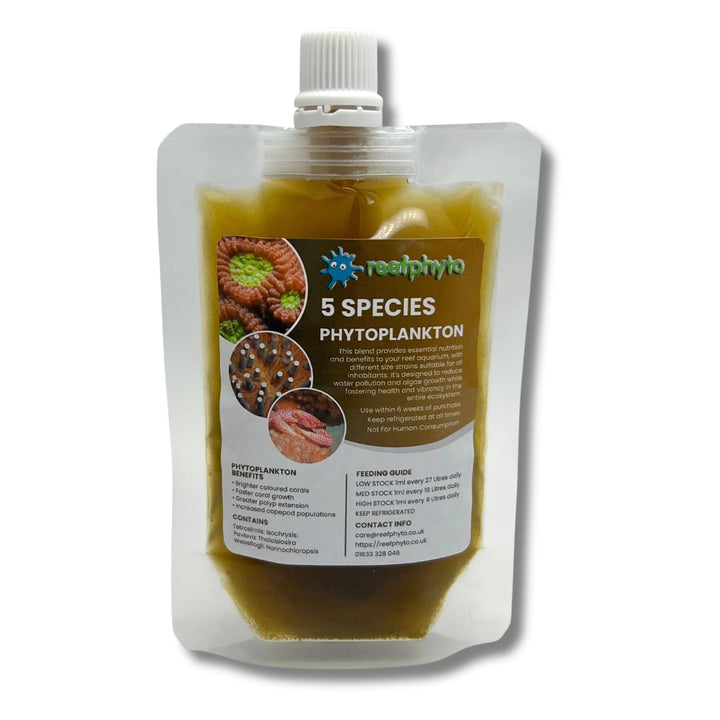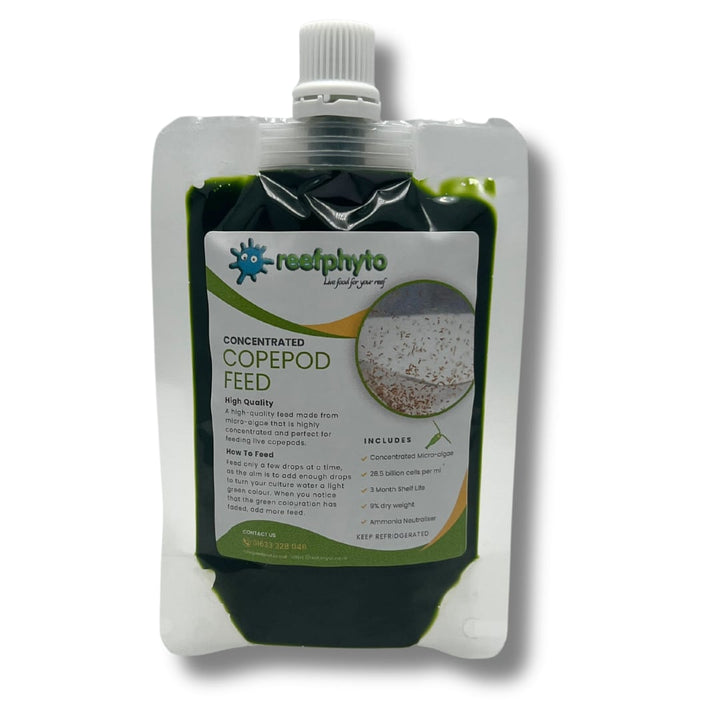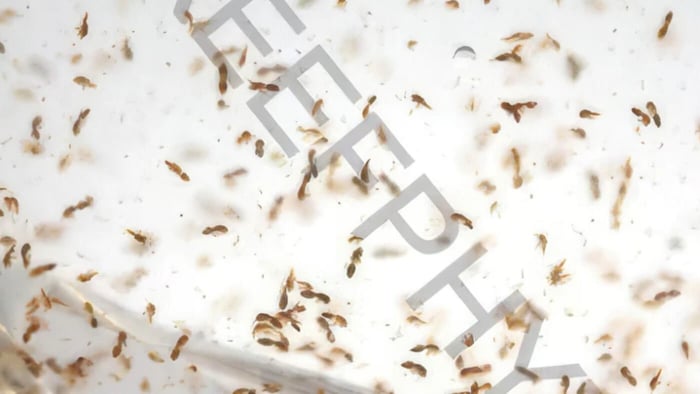What Do Copepods Eat?
In the intricate and captivating world of reef aquariums, it's not just the corals and fish that steal the spotlight. Beneath the shimmering waters, a tiny but crucial ecosystem thrives, teeming with diverse life forms. One of these unsung heroes is the copepod, a minuscule crustacean that plays a vital role in maintaining the health and balance of reef aquariums. But what do copepods eat in the reef aquarium? Join us on a journey through the underwater buffet of these tiny creatures.
Understanding Copepods
Copepods are a diverse group of small crustaceans that belong to the subclass Copepoda. They are abundant in marine and freshwater environments, and many species inhabit reef ecosystems. In reef aquariums, copepods are considered valuable members of the clean-up crew. They serve as a natural filtration source, helping keep the tank's ecosystem in equilibrium by consuming detritus and algae.
Dietary Diversity
Copepods are not picky eaters; they consume a wide variety of organic matter, making them vital detritivores and herbivores in reef aquariums. Here are some of the primary components of their diet:
-
Phytoplankton: Copepods are particularly fond of phytoplankton, microscopic plants suspended in the water column. Phytoplankton serves as a primary food source for copepods, providing essential nutrients. Copepod feed, which is ideal for feeding your copepod cultures, can be purchased here on our website.
-
Detritus: Copepods are excellent scavengers, and they play a crucial role in breaking down and consuming detritus – a mix of organic debris that accumulates in the aquarium. Their activity helps to prevent detritus from breaking down into harmful compounds that can negatively impact water quality.
-
Microalgae: Copepods are also known to feed on microalgae, including diatoms and green algae. By grazing on these algae, copepods help control algae growth in the reef tank, preventing it from overrunning corals and other desirable organisms.
-
Bacteria and Protozoa: Some copepod species are opportunistic feeders and may consume bacteria and protozoa in the water. This helps maintain a balanced microbial community in the aquarium.
5 Species Phytoplankton

£6.99
5 Species Phytoplankton Blend – Build a Thriving Marine Ecosystem Unlock the secret to vibrant corals, thriving copepods, and balanced water chemistry with Reefphyto’s 5 Species Phytoplankton Blend. This powerful live microalgae mix delivers diverse nutrition for filter feeders and… read more
5 Species Phytoplankton

£6.99
5 Species Phytoplankton Blend – Build a Thriving Marine Ecosystem Unlock the secret to vibrant corals, thriving copepods, and balanced water chemistry with Reefphyto’s 5 Species Phytoplankton Blend. This powerful live microalgae mix delivers diverse nutrition for filter feeders and… read more
Promoting Copepod Health
To ensure that copepods remain a thriving part of your reef aquarium's ecosystem, providing them with a suitable environment and diet is essential. Here are some tips for promoting copepod health:
-
Maintain Water Quality: Regular water changes and effective filtration are essential for removing excess nutrients and maintaining optimal water quality. Copepods thrive in clean water.
-
Feed Phytoplankton: Supplementing your aquarium with phytoplankton can help ensure a steady food source for copepods. Many hobbyists cultivate phytoplankton to maintain a stable copepod population.
-
Diverse Diet: Encourage a diverse diet for your copepods by providing different food sources. This can include commercially available copepod foods, algae, and detritus.
-
Avoid Chemicals: Be cautious when using chemicals or medications in your reef aquarium, as these can harm copepods and other beneficial organisms.
Copepod Feed

£5.99
Copepod Feed Concentrate – Fuel Healthy Copepod Cultures Copepod Feed Concentrate is a high-density live microalgae blend formulated to support robust copepod cultures. Its carefully selected algae species promote rapid reproduction, optimal enrichment, and a thriving microfauna population to sustain… read more
Copepod Feed

£5.99
Copepod Feed Concentrate – Fuel Healthy Copepod Cultures Copepod Feed Concentrate is a high-density live microalgae blend formulated to support robust copepod cultures. Its carefully selected algae species promote rapid reproduction, optimal enrichment, and a thriving microfauna population to sustain… read more
Conclusion
Copepods are vital as nature's clean-up crew and herbivores in the intricate dance of life within a reef aquarium. They consume a varied diet, including phytoplankton, detritus, microalgae, bacteria, and protozoa, helping to maintain a balanced and healthy aquatic environment.
By understanding their dietary preferences and providing for their needs, aquarists can ensure that these tiny crustaceans continue to thrive and contribute to the beauty and vitality of their reef tanks. So, the next time you gaze into your aquarium, take a moment to appreciate the often-overlooked copepods and their essential role in this miniature underwater world.

